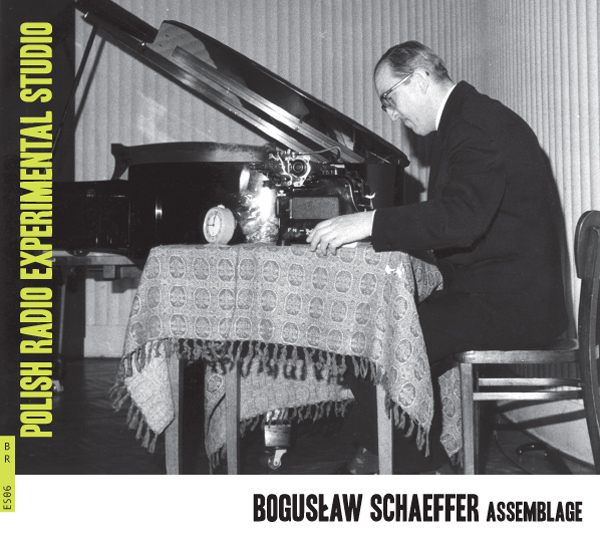|
Bogusław Schaeffer - Assemblage

|
Release Date: II 2012
Total Time: 70:57 / 68:54
2CD | 24-page booklet | digipack
CD1
1. Assemblage (second simultaneous version) 18:14
2-5. Electronic Symphony (performed by Bogdan Mazurek) 17:29
6. Heraklitiana (soloist: Urszula Mazurek - harp) 20:52
7. Project (soloist: Zdzisław Piernik - tuba) 14:32
CD2
1. Project (soloist: Mariusz Pędziałek - oboe, cor anglais) 16:24
2. M.P. listens to Heraklitiana (Mikołaj Pałosz - cello) 21:00
3-6. Electronic Symphony (performed by Wolfram) 17:05
7. Assemblage (first simultaneous version) 4:14
8. o.t. dec. 2011 (Thoman Lehn) 10:11
|
|
| Polish Radio Experimental Studio is the first official series of CD releases dedicated to the music produced in the legendary Studio. Established in 1957 by Józef Patkowski, it was among the first institutions of that kind in the world with only Paris, Cologne and Milano preceding the Warsaw one. Despite that, unlike their foreign colleagues who quickly became the most important figures of the XX century music, Polish composers working in the Studio are known only to a limited number of insiders.
|
Yet, as Reinhold Friedl, leader of zeitkratzer points out, 'the pieces give the impression of an artistic approach which has never been as strict or ideologically restricted as German electronic music or French concrete music. It seems to me that none of the musicians connected with this studio have had the tendency to limit him/herself to 'electroacoustic music', rather they all have a natural and holistic approach to composing' [see: BR ES03]. This is why the releases give us opportunity to revisit our historical ideas of XX century music with a fresh and inspiring insight.
Polyversional compositions were defined by Bogusław Schaeffer already in the 1960s. They were pieces written down not as 'definite aggregates' being an obligation towards an interpreter to perform the sounds composer had in his mind but rather potential aggregates encompassing variety of possible versions. After nearly half-century, a couple of notes should be added to the definition, even if they are nothing more than questions on its margins. They are not rooted in any theoretical insight but only in working on that particular album.
The question is: if the score is missing, can polyversionality mean improvising the soloist part upon listening to a fixed tape? (see: Heraklitiana - the composition for tape and soloist. There is possibly a score for this piece somewhere but a few month long search, with assistance of its author, gave no desired result.) If close listening to an 'original' version (based on a score) leaves a lot of doubt about the faithfulness to the score, do other more loose versions have to be mere variations? (see: o.t. dec. 2011 by Thomas Lehn.) And finally: does changing a title free us from an obligation of a faithful performance or is it only a misuse and attempt to pretend that a particular performance which is nothing more but one of possible realizations of Schaeffer's compositions is a creation of a different composer? |
|